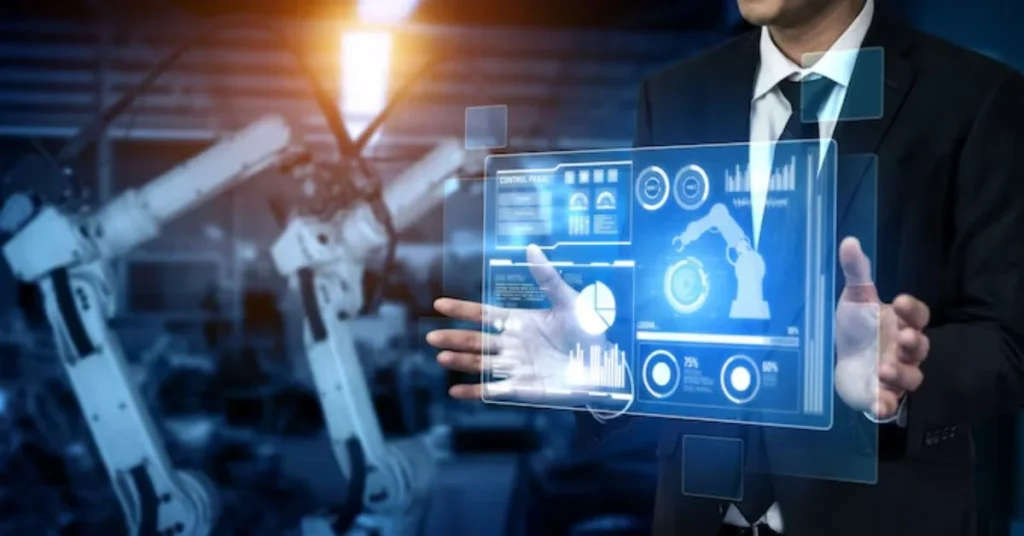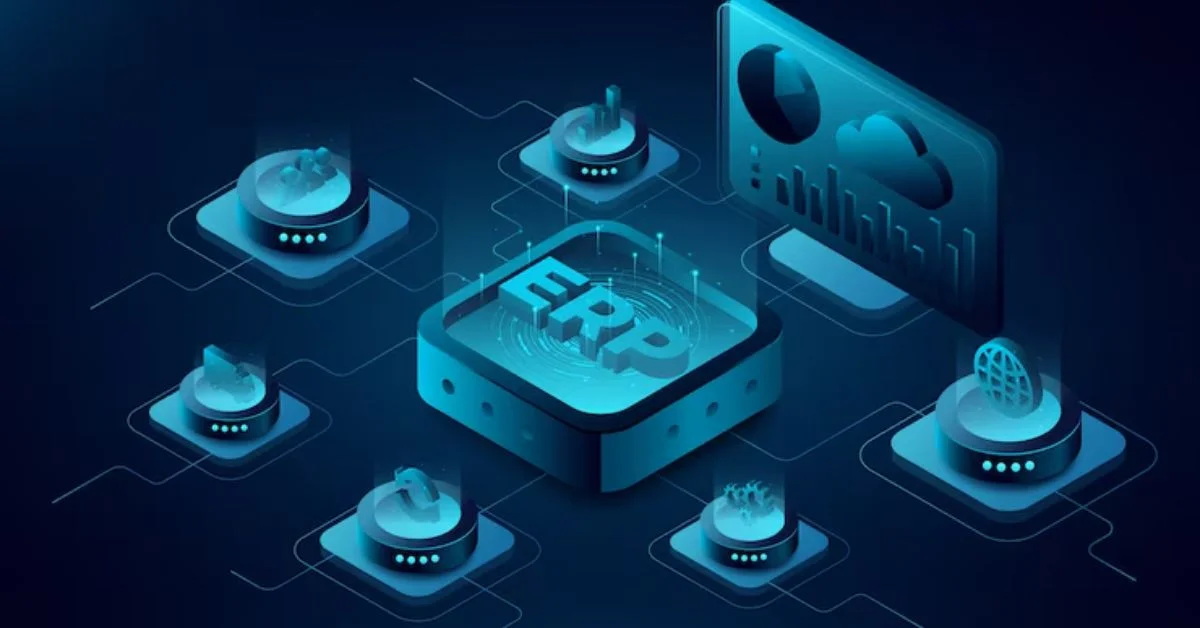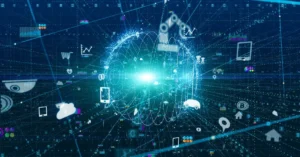In the evolving terrain of global business, few technological transformations have been as profound—and as quietly revolutionary—as the rise of AI-driven Enterprise Resource Planning (ERP) systems. For the emerging industrial and digital hub of Nusaker, these systems are not only tools of efficiency but harbingers of a broader socio-economic shift.
This article takes a deep, journalistic look into how AI-infused ERP systems are shaping the future of Nusaker, from manufacturing floors to government planning halls, offering insight into a transformation that may well redefine the nation’s economic destiny.
Nusaker: A Nation on the Cusp of Digital Renaissance
Once known primarily for its natural resource exports and agrarian base, Nusaker has in recent years undergone a quiet transformation. Spurred by investments in education, digital infrastructure, and startup ecosystems, the country now positions itself as a regional leader in digital adoption.
At the center of this transformation is the nationwide initiative “NusaSmart 2030,” a government-backed framework aimed at embedding digital systems into every facet of the economy. AI-driven ERP systems are a key component of this blueprint.
What Are AI-Driven ERP Systems?
ERP systems traditionally manage and integrate core business functions such as finance, supply chain, procurement, human resources, and production. AI-driven ERP systems enhances this architecture by embedding intelligent algorithms that can:
- Predict demand fluctuations
- Automate repetitive tasks
- Detect fraud or errors in financial data
- Offer strategic recommendations based on real-time analytics
- Continuously learn from new data inputs
By moving from reactive data entry to predictive and prescriptive analytics, these systems elevate enterprise operations from administration to strategic foresight.
From Data to Decisions: The Core Benefits for Nusaker
1. Supply Chain Agility
In Nusaker’s burgeoning manufacturing sector, AI-powered ERP systems are enabling dynamic supply chain adjustments. Systems can reroute logistics in real time during a disruption, forecast material needs, and balance workloads across facilities.
2. Workforce Optimization
As labor dynamics evolve, these ERP systems analyze employee performance, predict turnover, and recommend training initiatives. For a country with a young and digitally literate workforce, this allows for smarter talent deployment.
3. Public Sector Efficiency
Even local governments in Nusaker have started adopting AI-driven ERP systems tools to manage budgets, forecast expenditures, and improve service delivery. One district reported a 23% reduction in administrative overhead after deploying such a system.
4. SME Empowerment
For Nusaker’s small and medium-sized enterprises, traditionally hampered by limited resources, cloud-based AI ERP platforms offer enterprise-grade analytics and automation at a fraction of the historical cost.

The Role of Local Tech Startups
Nusaker’s growing tech sector is playing an instrumental role. Startups like NexNusa and AlgoCraft are developing ERP modules that address local business contexts—such as compliance with Nusakeran tax laws or integration with regional e-commerce platforms.
These homegrown platforms are not merely adapting Western systems but innovating from within Nusaker’s own digital logic, embedding multilingual support, rural connectivity considerations, and local cultural nuances into their UX design.
Real-World Implementation: Case Studies
Case 1: Nusatek Motors
A mid-sized electric vehicle manufacturer in Nusaker, Nusatek Motors implemented an AI-driven ERP systems suite to integrate their design, supply chain, and customer service operations. The result:
- 18% faster product development cycles
- 30% reduction in supplier lead-time issues
- Improved customer satisfaction from predictive maintenance alerts
Case 2: Kalimaya Agriculture Cooperative
This agri-tech initiative used AI ERP to track crop yields, market prices, and optimize distribution. Farmers received real-time insights on planting decisions and access to microloans based on ERP-verified production data.
Challenges and Growing Pains
While promising, the transition is not without obstacles:
- Data Silos: Legacy systems still dominate in some sectors, limiting the benefits of integration.
- Cybersecurity: With centralization comes vulnerability. Recent cyber audits prompted the development of the NusaShield cybersecurity framework.
- Change Management: Resistance from traditional management structures, wary of automation’s impact on job roles.
However, government incentives, including digital adoption tax credits and training grants, have begun to mitigate these challenges.
AI ERP systems and the Future of Education in Nusaker
With ERP systems increasingly used in universities and vocational training institutions, students are learning in AI-assisted environments. Schools use ERP data to tailor learning paths, predict dropout risks, and align curriculum with job market trends.
Graduates are entering the workforce ERP-literate, closing the gap between education and employability.
Environmental Monitoring and Sustainability
Another growing application is in sustainability. AI ERP systems now track energy consumption, emissions, and waste generation across operations. Factories in Nusaker’s Green Corridor program have used ERP tools to:
- Monitor carbon output per unit of production
- Optimize waste management logistics
- Earn carbon credits via verified reporting
Strategic National Goals
Nusaker’s Ministry of Digital Economy projects that by 2030:
- 85% of public sector transactions will be ERP-integrated
- Over 70% of GDP will be traceable through AI-augmented ERP platforms
- Nationwide productivity will grow by 12% as a direct result of ERP intelligence
These goals reflect a larger ambition: to make Nusaker not just an adopter of technology, but a global model of ERP-powered governance and commerce.
Ethical and Legal Considerations
The deployment of AI ERP systems is not without moral and legal implications:
- Data Privacy: How data is collected, stored, and used is under active regulation.
- Algorithmic Bias: AI must be trained on representative data to avoid discriminatory outcomes.
- Labor Displacement: Automation prompts debates around universal basic income and upskilling mandates.
Public consultations and policy white papers have become frequent to ensure alignment between innovation and societal values.
The Global Position of Nusaker
With its proactive stance, Nusaker is now being looked at by other nations for lessons in digital governance and industrial agility. Delegations from Southeast Asia and Africa have toured Nusakeran facilities to learn about ERP deployment strategies.
Local ERP vendors are expanding abroad, signaling Nusaker’s potential as a software exporter rather than just a technology consumer.
Looking Forward: The Next Decade of AI ERP
Experts predict the next evolution will include:
- Emotion-Aware Interfaces: ERP systems that adapt based on user sentiment analysis
- Blockchain Integration: To enhance transparency in procurement and audit trails
- Natural Language Interfaces: Voice-activated ERP commands for field workers and executives alike
As AI continues to learn, the role of human workers will evolve from data entry to strategic decision-making, overseeing the orchestration of complex digital symphonies.
Conclusion: A New Era for Nusaker
AI-driven ERP systems are more than a technological upgrade for Nusaker. They are a structural shift—one that reimagines how work is done, value is created, and decisions are made.
The future of Nusaker, framed by the intelligent automation and data-driven governance enabled by ERP systems, offers a glimpse into the possible. A nation once defined by natural resource output is now mapping its future in lines of code, predictive analytics, and synchronized systems.
As Nusaker steps forward into a digitally interlinked era, AI ERP is not merely a tool. It is the nervous system of a new kind of nation: agile, aware, and ahead of its time.
For more information, click here.









